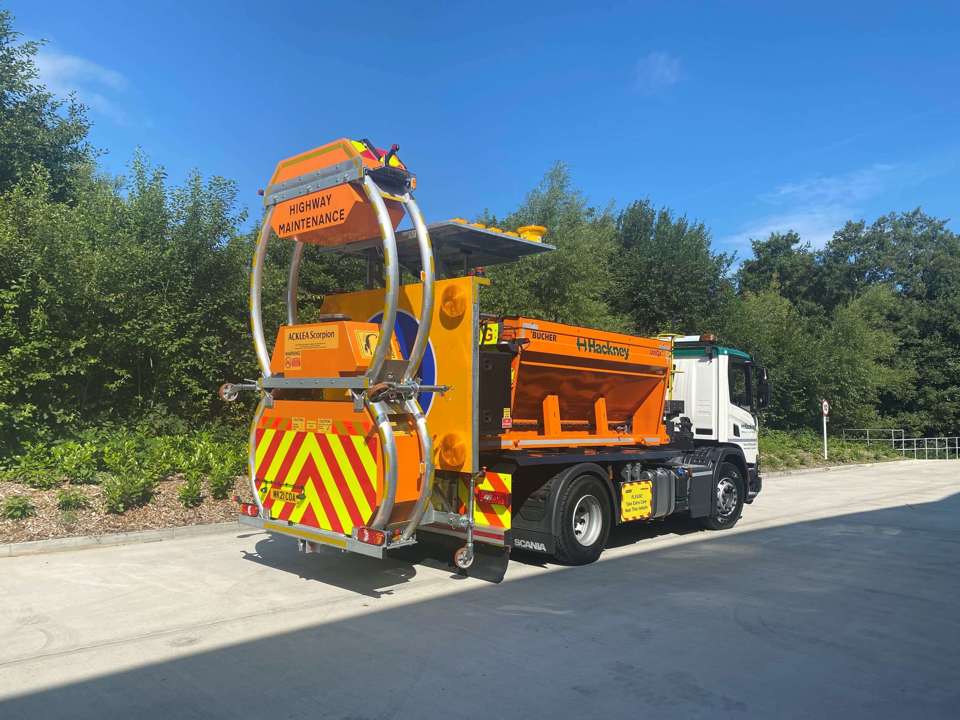Local authorities and contractors could save money and create efficiencies by adapting their winter road gritters into spring and summertime traffic management vehicles, says Acklea.
Acklea said it has helped councisl to do this by attaching crash cushions and light boards to their road gritters and salt spreaders, vehicles that can be rented as well as leased or owned.
The traffic management company says this enables those vehicles to be legally used for traffic management safety and blocking duties such as grass verge and street light maintenance, reducing the need for local authority investment in additional traffic management vehicles and means the gritters don’t need to be garaged for several months every year.
Norman Harding, corporate fleet manager at the London Borough of Hackney, said: “We have two road gritters that would sit largely idle when not on winter maintenance duties.
“Acklea’s smart demountable crash cushions, light arrow boards and road safety markings mean we now use them as traffic management blocking vehicles at any other time. The adapted vehicles keep teams safe while they’re working by the roadside and help us save thousands of pounds every year.”
Acklea has created bespoke solutions partnering with road gritter manufacturers such as Econ and Bucher Municipal. The team assesses each vehicle for compatibility and the modifications usually take around two weeks.
Clive Brocklehurst, product manager at Acklea, said: “Every penny helps, and turning seasonal winter vehicles into dual-purpose all year-round vehicles is a good way to extract value from a council’s transport investment.
“This way local authorities and contractors aren’t paying for gritters to stand idle when they can easily be adapted to keep working on other aspects of road safety and maintenance.
“This approach also helps to reduce the total number of vehicles on the road, as two separate vehicles are replaced by a single unit with easily-adaptable modifications. This is a highly efficient and effective solution that could make sense for a lot of councils.”























Login to comment
Comments
No comments have been made yet.